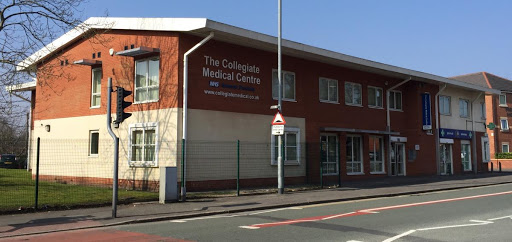In the midst of the biggest health crisis in recent history, thousands of doctors say important wider patient care has been neglected in the COVID-19 pandemic and are significantly worried about long-term clinical demands on the NHS.
More than half of doctors told a British Medical Association (BMA) surveythat prioritisation of confirmed and suspected COVID-19 patients was worsening the care available to those without the condition. Almost a third of doctors responding said it was having a significantly worse impact.
More than 16,000 doctors from across the UK replied between 28-30 April, in what is the biggest survey gauging UK doctors’ opinion since the start of the COVID-19 crisis. The BMA’s findings come at a crucial time for the Government as it reviews its five tests for easing lockdown ahead of the May 7th deadline, the first of which is “making sure the NHS can cope”.
Further, the biggest concern raised by doctors is the long-term impact on patient clinical demand, with 40% saying this is their greatest worry.
Hospitals have been repurposed into prioritising COVID patients, with a halt put on a range of other services for patients – including for those with chronic conditions. Wards and facilities have been adapted to cope with the demand of patients with the coronavirus infection at the expense of other patients. Referrals from GPs are not being accepted unless for a serious medical conditions and routine investigations to aid diagnosis are not available in many cases.
Before the COVID outbreak the NHS was already suffering record waits in general practice, A&E, hospital and cancer services. The health needs of patients have not disappeared, but their care has effectively been placed on hold whilst the NHS deals with the pandemic. There are serious concerns that some patients may have deteriorated and possibly died as a result. A&E attendances are down by as much as 50% as patients have also feared leaving home, thus not receiving the care they need.
The survey also found that a more than a quarter of doctors were experiencing shortages of vital medicines, gases or therapeutics, with almost a third saying that such shortages – or anticipated future shortages – have forced them to offer less effective treatment than they ordinarily would5. Inhalers, antibiotics, HRT medicines, anaesthetic drugs, oxygen and painkillers were amongst those referenced as experiencing supply issues.
One cancer surgeon told the BMA in their response that the number of referrals they were receiving was as low as a quarter of normal levels, and that they feared how this delayed care will impact on patients and that they would be hit with a large wave of referrals once the COVID situation eases – and with more advanced cases and worse outcomes. The impact on general practice will be significant when patients who have delayed seeing their doctor decide to seek care.
Another simply said: “I’m struggling with being a surgeon but not being able to offer operations”.
One doctor said they felt “no one cares in the slightest” about parts of the NHS not dealing with COVID patients, leaving staff “drowning” as they try to keep services running.
As revealed over the weekend, the survey findings also showed that there are still problems with PPE, with almost half of doctors having to source their own equipment or rely on donations6, the provision of which will need to be significantly expanded if the NHS resumes normal services.
Dr Chaand Nagpaul, BMA council chair, said:
“While all parts of the NHS have rallied around in a bid to meet the immediate rocketing demand caused by the COVID-19 pandemic, these findings bear out the fears held by many doctors that parts of the health service – and most importantly the needs of patients more widely with non-COVID illness – are being neglected.
“This means many ill patients are not getting the care they so desperately need now – and crucially, risking their conditions getting worse and with some maybe even dying as a result. Once this current situation eases, it is highly likely that there will be a sudden spike in demand, from patients with far more acute illnesses, caused by a delay in timely treatment. It is vital that the NHS plans for this now.
“Already 1 in 4 doctors said they have been redeployed to cope with the pandemic, and if they return to their usual work as services resume, this would reduce workforce available for dealing with the demand from COVID care.
“Before any lockdown measures are eased, the Government has rightly insisted that the NHS must be able to cope. These results clearly show that this is not just about COVID, but also a potential surge in other patients, who may have put off accessing healthcare or, indeed had their treatment deferred.
“Crucially the Government must set out a clear and tangible plan of how the system will have capacity both for the ongoing demands of the pandemic, as well as resuming services for those patients whose care has effectively been frozen.”
Lesley Bentley, chair of the BMA Patient Liaison Group, said:
“The findings of the BMA survey are of concern, so it’s important that the message that the NHS is open for business is clear and reinforced.
“Even at the time of the Covid-19 pandemic, it is vital that patients continue to get the care and treatments they need and feel confident in doing so.”







